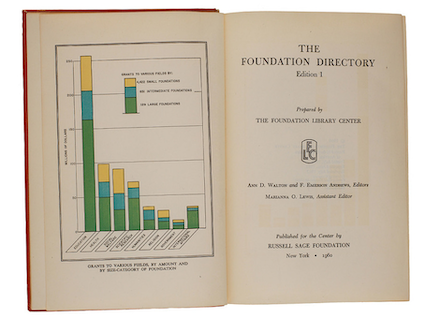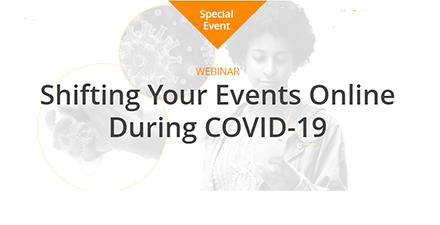Drilling down on Candid’s commitment to data and transparency

My days are steeped in Candid data. As Candid’s vice president of data, a crucial aspect of my job is to ensure our data is trustworthy. We want the organizations, funders, researchers, and journalists who access this information to be confident using it to shape narratives, whether they are focused on climate change, the war in Ukraine, or other issues of our time.
Data is critical to the social sector, and it’s not just one thing. It ranges from the granular (like a single number shown on an organization’s profile) to the mechanical (for instance, how can we get this great info quickly to users in a meaningful way?). One question I regularly revisit is whether showing data that already exists—in its original form, without attaching judgement or interpretation—remains as valuable as when our predecessor organizations, GuideStar and Foundation Center, were founded decades ago. I argue that it’s critical, particularly given increasing need, lags in traditional government data sources, and the limited tools nonprofits have to do their crucial work.
Increasing demand for data
At our core, Candid is a data-gathering, improving, organizing, and sharing organization. Our objective is to create a more efficient social sector—while reducing the burden on nonprofits—by helping funding flow faster to those who need it most. We actively seek information on nonprofit funding from three sources:
- Government sources (which, for U.S. organizations, is largely the publicly available IRS Form 990 filings, Business Master File, and a few others)
- Real-time data sources, including news, social media, and websites
- Data contributed directly by nonprofits and funders.
We currently have nearly 3 million nonprofit organizations in our data systems and information on over 24 million transactions and grants, covering the globe. In the U.S. alone, we track all 1.8 million nonprofits, with data originating from U.S. government sources. We also gather information by scanning 1 million news articles every day, and hundreds of thousands of websites and social media feeds, for signals on exciting developments in the social sector. Most important of all, we collect self-submitted data from the largest (and smallest) nonprofits and foundations related to grants, financials, demographics, operational metrics, and reports. For those who already report your data to Candid via the Seals of Transparency or the eReporting program, thank you!
Candid pushes this information out publicly through our tools like GuideStar, Foundation Directory, APIs, and the Funding Information Network, where our partners freely provide access to these resources in their communities. Most people searching on Candid are looking for information on a specific nonprofit, funder, or issue. More than 99% of our users access this data for free through the basic versions of these tools, research collections, and on public sites Candid creates to speak to crucial issues like democracy, human rights, racial equity, and COVID-19.
For those who want to dig deeper for funding sources or information on many nonprofits (often for advanced fundraising functionality or business purposes that require high volumes of detailed data), we offer subscriptions to more robust versions of Foundation Directory, GuideStar Pro, and managed data services. For example, Facebook Fundraisers licenses data from Candid to validate nonprofits’ current tax-exempt status and determine eligibility. Subscriptions and licensing revenue from professional and commercial applications allows Candid to build the technology, data infrastructure, and products necessary to pursue better data and insights for the entire sector.
Battling the data lag
Asking organizations to dedicate valuable time to submit their information to us directly results in transparency, leading to increased efficiency for both nonprofits and funders who support them. For example, one of the most common ways our tools are used is due diligence: funders turn to Candid to verify a nonprofit’s tax-exempt status and better understand their work when making funding decisions.
There is always a time lag in 990 data, but since the beginning of the COVID-19 era, nonprofits and the IRS have been slower than normal in submitting and publishing 990s. We are committed to finding a better way to facilitate transparency and incentivize direct data reporting to resolve this time gap. And even if we solve this problem, there are still quality and quantity issues due to the limitations of the Form 990. To put it plainly, we need a more direct and efficient process for gathering and providing information about the social sector.
This is where Candid’s nonprofit profile and Seals of Transparency come in. We prioritize getting unbiased information into people’s hands to support informed decision making. To acknowledge the time and effort nonprofit staff must take to claim their profile, gather, and submit their information, we offer the opportunity to earn Seals of Transparency. A Seal indicates that an organization has demonstrated a level of transparency by providing additional information about their finances, operations, and activities.
Transparency as a nonprofit tool
People often ask, “But aren’t Seals of Transparency ratings?” They’re not. Seals are an incentive to encourage nonprofits to share their data with Candid. We have intentionally decided not to rank or rate organizations in the interest of providing quality information without judgment or bias. We understand that people want to see a rating attached to information on nonprofits, and other organizations like our friends at Charity Navigator do provide these ratings.
Our goal at Candid is to equip nonprofits with the tools they need to thrive, and Seals are one of those tools. For smaller, under-resourced nonprofits, Candid’s nonprofit profiles provide a platform for storytelling that doesn’t require big web development, marketing, or PR budgets. Every profile has the same look and feel, and every Seal has the same threshold for eligibility. While we know they can be misused as a rating or endorsement, the vast majority of nonprofits use their profiles and Seals as intended: to tell a rich, compelling story about their critical work.
Candid’s mission, to get you the information you need to do good, might seem simple, but it’s actually quite complex. It includes running through all our algorithms and data governance processes at a large scale, with the purpose of creating value and meaning out of an ocean of messy data for the entire social sector. We realize that the final product isn’t perfect but are committed to inviting and incorporating feedback regularly via [email protected] to improve our offerings and better meet the entire sector’s needs.







Kate, Digital Communications Manager, Candid says:
Hi David, what service are you looking for?
David says:
Hi Jake,
Please let me know how I can subscribe for your service